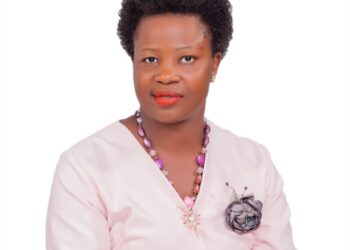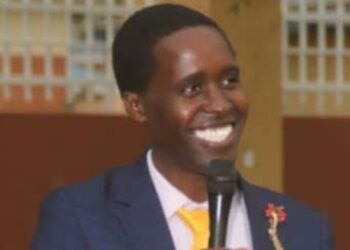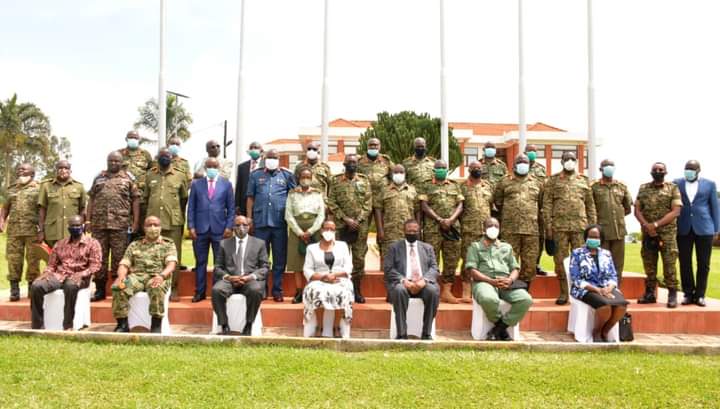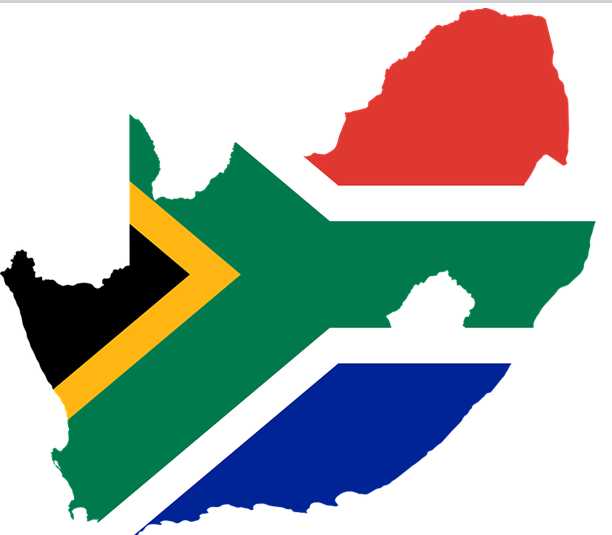In the run up to the 2021 General Elections, the Ugandan political class is typically restless – completely clueless about the strategic direction the country must continue to take. This restlessness clearly, is due to the lack of ideological clarity. This is not very healthy for the country, and for example leads to total confusion about the discharge of objective national strategic tasks – let alone what these are. It leads to a conflation between WHAT needs to be done, WHO does it, WHEN it is to be done, HOW it is to be done, etc. In the next few weeks and months, we shall share our thoughts and contribution about unravelling the katogo.
The Oppositionist variant of the political class, has a single and quite familiar refrain in its restlessness: “Museveni must go”. This group incredibly believe that acceding to State House – in itself and by itself – shall “solve the problems of Uganda”. They go through all sorts of contortions, looking for the magical elixir that ushers them into State House! The truth is that in their populist exertions, they remain a paper tiger – which must be taken very seriously in the short term (because of the damage they can cause as they run up and down), while remaining totally irrelevant to the fundamental liberation processes of our people, over the longer term.
The Movement variant of the political class has its own issues. In the recent massive and highly successful internal democratic exercise in primary elections, many in this group have exhibited a wanton and gross proclivity (shared with other variants of the political class) for disruptive and dishonest behavior and practices. The silver lining in this fortunately, is that the mass membership are vigilant, and shall definitely protect the vote they cast at the village/branch. Most important, the national leadership remains wide awake to the challenge here, does not and could not possibly condone the malpractices, and is having the situation dealt with decisively.
Over the medium to longer terms, the Movement must, naturally invest more in the development of its advanced cadreship and in organization development. The national context for all this, is the gradual consolidation of a national democratic consensus, national psyche and national ethos. This is an historical process – unfolding as increasingly ideological formations reflecting definite social-economic material interests, emerge from the broad political fronts and mass movements of our people.
The other irritant is something we noticed in social media recently. We have no choice, but to address ourselves to this irritant. Some of the Movement variant of the political class have started advocating for this or that member to be Presidential Candidate in 2026! This is reckless, irresponsible and completely unnecessary. It creates a false debate – moreover in the middle of an election campaign. It is potentially divisive. What is most urgent is to unite the leadership and membership in decisively winning the forthcoming elections. Whoever spurns such false debate, would be best advised to cease henceforth.
The founding leadership of the Movement is here with us. It is fully awake to its duties and responsibilities. President Yoweri Museveni has been and remains the undisputed theoretician, strategist, and tactician of the Movement – for the last 60 or so years. He, working with several compatriots and wananchi, has been the principal author of the successes of the Movement. He has, further, clearly illuminated the liberating path into a new, glorious and achievable future … towards a united, digital, nuclear and space age East Africa … within a strong African Economic Community. At appropriate time, he will provide necessary guidance to all such questions – within the democratic dispensation of the Movement.
And, there are extremely useful precedents in the history and practice of other mass liberation Movements. Nelson Mandela, Oliver Tambo, Govan Mbeki, Walter Sisulu, etc – were the leaders of the radicalization of the African National Congress in the 1950s. When Mzee Mandela (Madiba) still greatly loved and trusted by members of the ANC and the South African people, considered that it was time to have a new overall state leadership, he started guiding the ANC appropriately – guidance which was anchored in the internal ANC democratic dispensation, and which ushered in Thabo Mbeki as State President.
Mwalimu Julius Kambarage Nyerere did exactly the same with the mass liberation movement – the Chama Cha Mapinduzi. He guided the mass liberation Movement on questions of new overall state leadership, at appropriate time – guidance which ushered in Mzee Ali Hassan Mwinyi, Benjamin Mkapa and Jakaya Mrisho Kikwete as Presidents respectively, of the Union … And in that order.
Quite a few other countries, home to emergent peoples, have interesting and instructive experiences in the mentoring and development of leaderships in transiting societies. Botswana and Singapore come easily to mind.
Our point in all this, is that if and when the need arises, President Yoweri Museveni and the Central Executive Committee shall provide the necessary guidance – anchored in the Movement democratic dispensation, and Ugandan national specificities. Movement activists should concentrate on ensuring an overwhelming margin of victory for Presidential Candidate Yoweri Museveni and other Movement Candidates.
This brings us back to the need for absolute ideological and political clarity amongst ourselves. We are dealing with thinking, with understanding reality. We are dealing with the need for us to think for ourselves. The neo-liberal orthodoxy at the global level, is translated into pseudo-liberal development paradigms amongst the world’s emergent peoples, which saps and inhibits the creative faculties and innovation of their nascent political classes, elite and intellectuals, towards socio-economic transformation.
We have chosen to flag a number of issues and concepts that indicate the central importance of ideological and political clarity. We shall deal with these in some detail over the next few weeks.
1. National Liberation/New Democratic Revolutions. In January 1940, Mao Zedong wrote his seminal work, “On New Democracy”. Instructively, Mao titled the first part of “On New Democracy”, “Whither China?” – echoing and referring to Lenin’s “What is to be Done?” forty years earlier. To paraphrase Mao in “On New Democracy”, in the colonies and former colonies, revolutions of a new type – new democratic revolutions – were going to take place.
Mao went on to talk about new democratic government being established by a joint democratic dictatorship of all revolutionary classes. He remarked, “The present task of the revolution in China is to fight imperialism and feudalism, and socialism is out of the question until this task is completed. The Chinese revolution cannot avoid taking the two steps, first of New Democracy and then of Socialism. Moreover, the first step will need quite a long time”.
Years later, African leaders and revolutionaries echoed that last sentence both in theory and practice – in the specificities of their people’s struggles. Yoweri Museveni summarized it thus: “The NRM is neither pro-West nor pro-East – it’s pro-Uganda. John Garang de Mabior opined, “We are neither pro-West nor pro-East. We are pro-Africa”.
The African National Congress enriched this discourse by further developing the theory of “National Democratic Revolution”, reflecting it in the Freedom Charter. Etc.
2. The National Liberation Movement. The national liberation movement is a global movement which started between the two world wars. It is a movement for self-determination and national independence of the emergent peoples of the world, against fascist dictatorship – for justice and social progress.
In this sense, the national liberation movement is a broad front or coalition of forces, united for national liberation. It cannot, therefore, be strictly uni-ideological like the classical political party. Still, there is always a dominant political line. In the case of the NRM, this is encapsulated in the vital elements of Nationalism, Pan Africanism, Socio-Economic Transformation and Democracy. The ideological leader of the dominant political line is Yoweri Museveni.
3. Leadership of the National Liberation Movement and the Revolutionary Intelligentsia. Amilcar Cabral, addressing the Congress of the Communist Party of Cuba in 1968 observed, “This means that in order to truly fulfill their role in the national liberation struggle, the revolutionary petty bourgeoisie must be capable of committing suicide as a class in order to be reborn as revolutionary workers, completely identified with the deepest aspirations of the people to which they belong.”
“This alternative – to betray the revolution or to commit suicide as a class – constitutes the dilemma of the petty bourgeoisie in the general framework of the national liberation struggle. The positive solution in favor of the revolution depends on what Fidel Castro recently correctly called the development of revolutionary consciousness. This dependence necessarily calls our attention to the capacity of the leader of the national liberation struggle to remain faithful to the principles and to the fundamental cause of this struggle.”
4. The Nature/Character of the State and Law. There are many misconceptions around this matter. We can talk about, and do respect the concept of universal values and norms. In the end, however, law is the will/interests of the ruling coalition raised to the level of legal norm. The main question here, would be to remain true to the vital interests of wananchi, who form the wide membership of the Movement.
5. Unity, Discipline and Organization Building. These cannot be abstract. We can only meaningfully talk about unity and discipline around ideology, the programme and within structures.
These three elements mediate both progress and resolution of inevitable contradictions.
6. The Trigger/ Catalyst of the Development and Transformation of Societies. President Yoweri K. Museveni has spoken and written extensively about this. We intend to amplify his thoughts.
As we progressively consolidate unanimity and common understanding around these issues and concepts, i.e. consolidating ideological and political clarity, we shall have built an unshakeable foundation for a most formidable vehicle for the unstoppable forward movement of the Ugandan and African people.
K. David Mafabi
Senior Presidential Advisor/Special Duties
State House
28th September 2020
Do you have a story in your community or an opinion to share with us: Email us at editorial@watchdoguganda.com













